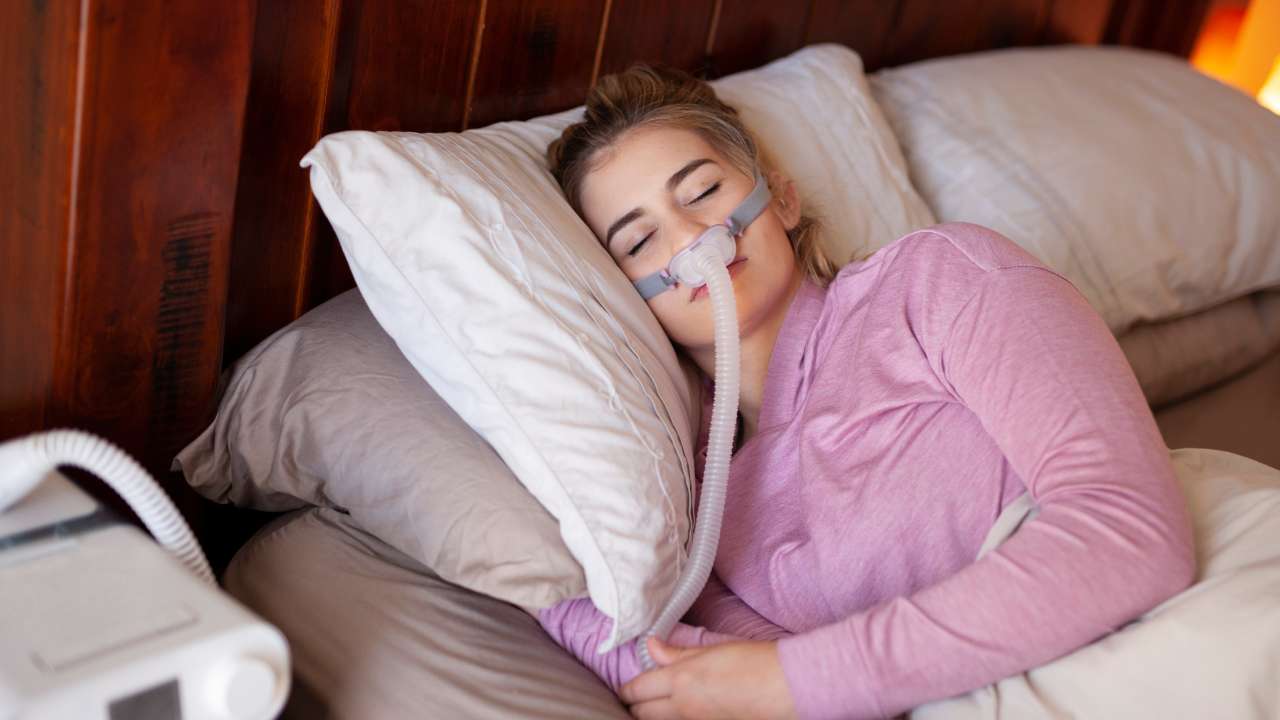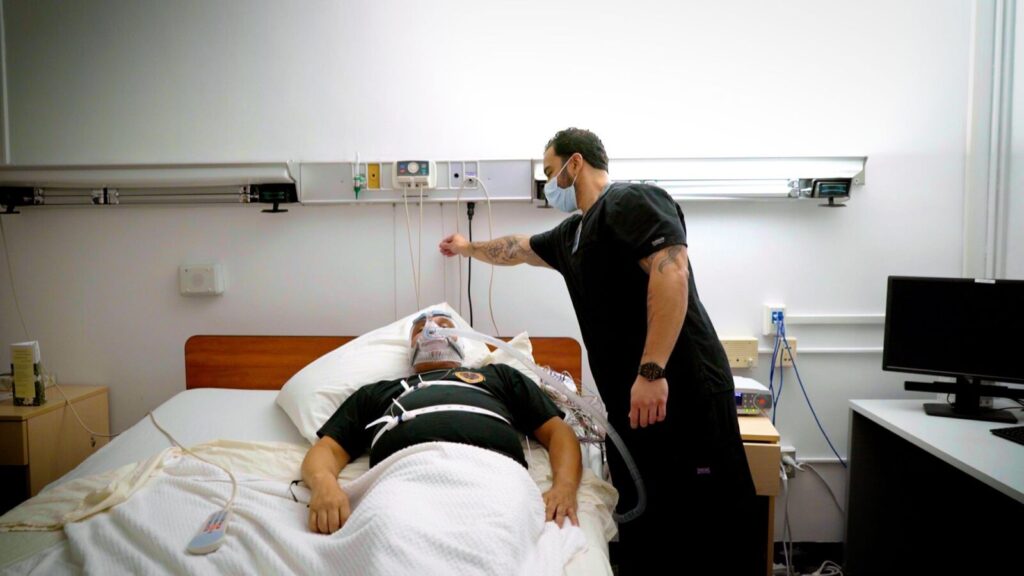
In today’s fast-paced world, sleep often takes a back seat to our busy lives. However, the importance of quality sleep cannot be overstated. For many individuals in Perth, sleep disturbances can significantly impact daily life, leading to fatigue, decreased productivity, and a host of health issues. A sleep study may be the first step towards reclaiming restful nights and rejuvenated days.
Understanding Sleep Disorders
Sleep disorders encompass a variety of conditions that affect the ability to sleep well on a regular basis. Common issues include insomnia, sleep apnoea, restless leg syndrome, and narcolepsy. Each of these disorders can disrupt the natural sleep cycle, leading to poor sleep quality and daytime drowsiness. The prevalence of these disorders is significant, with millions of individuals worldwide experiencing some form of sleep disruption. Understanding the underlying causes and symptoms is crucial for effective management and treatment.
In conclusion, better sleep starts with understanding the underlying issues that may be affecting sleep quality. For residents of, a sleep study Perth can provide valuable insights and pave the way for effective treatment. By taking the first step towards addressing sleep disorders, individuals can improve their overall health and well-being, leading to more restful nights and productive days.
Insomnia
Insomnia is characterised by difficulty falling asleep, staying asleep, or waking up too early. This condition can be triggered by stress, anxiety, or even certain medications. Individuals suffering from insomnia often find themselves feeling tired and irritable, which can further exacerbate their sleep issues. Chronic insomnia can also lead to a range of psychological problems, including depression and anxiety disorders, creating a vicious cycle that can be challenging to break. Lifestyle factors such as excessive screen time before bed, caffeine consumption, and irregular sleep schedules can also contribute to the development of insomnia, making it essential for individuals to evaluate their habits and environments to promote better sleep hygiene.

Sleep Apnoea
Sleep apnoea is a more serious condition that involves repeated interruptions in breathing during sleep. These interruptions can last for several seconds and may occur numerous times throughout the night. Symptoms often include loud snoring, gasping for air during sleep, and excessive daytime sleepiness. If left untreated, sleep apnoea can lead to serious health complications, including heart disease and high blood pressure. The condition is often associated with obesity, but it can also affect individuals of normal weight. Diagnosis typically involves a sleep study, which monitors breathing patterns and oxygen levels during sleep. Treatment options range from lifestyle changes, such as weight loss and positional therapy, to the use of continuous positive airway pressure (CPAP) machines, which help keep the airway open during sleep. Understanding and addressing sleep apnoea is vital not only for improving sleep quality but also for enhancing overall health and well-being.
Read more at: Accurate and Reliable Sleep Testing in Perth
The Role of a Sleep Study
A sleep study, or polysomnography, is a comprehensive test used to diagnose sleep disorders. Conducted in a specialised sleep clinic or at home, the study monitors various body functions while the patient sleeps, including brain activity, eye movement, heart rate, and breathing patterns.
What to Expect During a Sleep Study
During a sleep study, patients are typically connected to a series of sensors that track their sleep patterns. These sensors are non-invasive and painless. Patients may be asked to spend the night in a sleep clinic or use portable equipment at home, depending on the specific circumstances and recommendations from their healthcare provider.
In a sleep clinic, the environment is designed to mimic a comfortable bedroom, allowing patients to relax and fall asleep naturally. Technicians monitor the study from another room, ensuring that everything runs smoothly while the patient sleeps. Read more about comfortable on https://community.lincs.ed.gov/group/119/discussion/comfort-vs-learning
Interpreting the Results
After the study, the data collected is analysed by a sleep specialist. The results can help identify the specific sleep disorder affecting the patient and guide treatment options. Understanding the underlying cause of sleep issues is crucial for effective management and improvement of sleep quality.
Benefits of a Sleep Study in Perth
For residents of Perth, undergoing a sleep study can offer numerous benefits. Not only does it provide clarity on sleep issues, but it also opens the door to tailored treatment plans that can significantly enhance overall well-being.

Personalised Treatment Plans
Once a sleep disorder is diagnosed, healthcare providers can develop personalised treatment plans that may include lifestyle changes, behavioural therapy, or medical interventions. For instance, those diagnosed with sleep apnoea may benefit from continuous positive airway pressure (CPAP) therapy, while individuals with insomnia might explore cognitive behavioural therapy for insomnia (CBT-I).
Improved Quality of Life
Addressing sleep disorders can lead to a marked improvement in quality of life. Patients often report increased energy levels, better mood, and enhanced cognitive function after receiving appropriate treatment. This not only affects personal health but can also improve professional performance and relationships.
Preparing for a Sleep Study
Preparation for a sleep study is relatively straightforward, but certain steps can help ensure the process goes smoothly. Patients should follow their healthcare provider’s instructions carefully to maximise the effectiveness of the study.
Consultation with a Sleep Specialist
Before undergoing a sleep study, it is essential to have a consultation with a sleep specialist. This appointment will typically involve discussing symptoms, medical history, and any previous sleep issues. The specialist may also ask about lifestyle factors that could be impacting sleep, such as caffeine consumption, exercise habits, and stress levels. Click here to find more about symptoms.
Preparing for the Night
On the night of the study, patients are advised to avoid caffeine and alcohol, as these substances can interfere with sleep patterns. It is also recommended to maintain a regular sleep schedule leading up to the study, as this helps to ensure that the body is prepared for a good night’s sleep.
After the Sleep Study
Following the sleep study, patients will typically have a follow-up appointment to discuss the results. This meeting is crucial for understanding the findings and determining the best course of action for treatment.
Understanding Treatment Options
Based on the results of the sleep study, various treatment options may be explored. These can range from lifestyle changes, such as improving sleep hygiene, to medical interventions, including the use of CPAP machines for sleep apnoea or medications for insomnia.
Ongoing Monitoring and Support
Sleep disorders often require ongoing management. Regular follow-ups with the sleep specialist can help monitor progress and make necessary adjustments to treatment plans. Support groups and counselling may also be beneficial for individuals dealing with chronic sleep issues.
Finding a Sleep Clinic in Perth
For those considering a sleep study, finding a reputable sleep clinic in Perth is essential. Researching local clinics and reading reviews can help individuals make an informed decision. It is also advisable to consult with a healthcare provider for recommendations.
Accreditation and Expertise
When selecting a sleep clinic, it is important to consider the accreditation of the facility and the expertise of the staff. Accredited clinics adhere to strict standards and protocols, ensuring that patients receive high-quality care. Additionally, clinics with experienced sleep specialists are more likely to provide accurate diagnoses and effective treatment plans.
Convenience and Accessibility
Accessibility is another factor to consider. Some clinics may offer home sleep studies, which can be more convenient for patients who prefer to sleep in their own environment. Additionally, consider the location of the clinic and whether it is easily accessible for regular follow-ups.
Conclusion
Investing in sleep health is an investment in a better quality of life. With the right support and treatment, achieving restful sleep is within reach. For those struggling with sleep issues, seeking help through a sleep study could be the key to unlocking the restorative power of a good night’s sleep.




